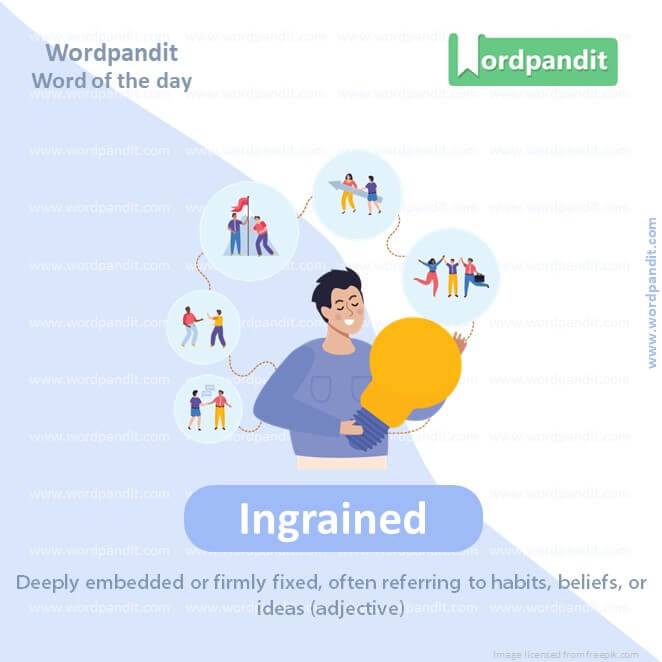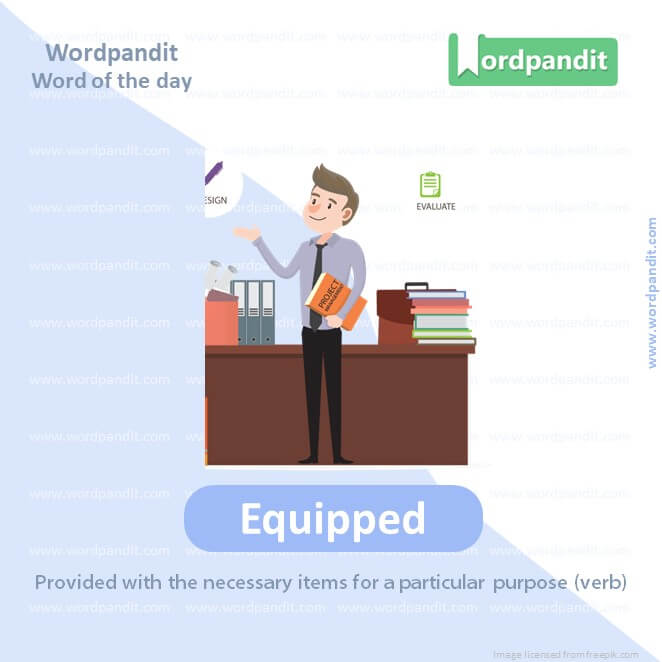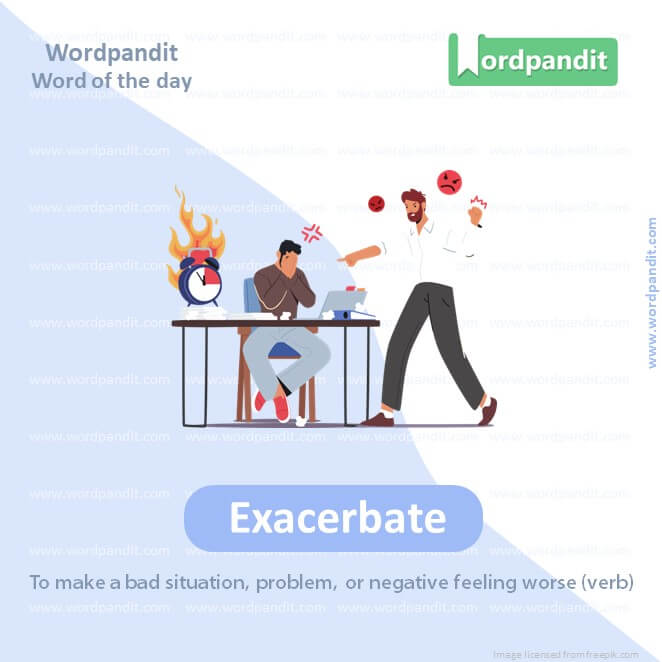Daily Vocabulary Words: List of Daily Used Words
Hi there. Welcome to this special section @ Wordpandit.
Our endeavour here is straightforward: highlighting important daily vocabulary words, you would encounter in The Hindu. This is your repository of commonly used words; essentially, we are posting a list of daily used words. Hence, this has significant practical application as it teaches you words that are commonly used in a leading publication such as The Hindu.
Visit the website daily to learn words from The Hindu.
WORD-1: Diminution
CONTEXT: the Rules of Regulation of KRS and other reservoirs, if and when built, in such a manner that there should not be “any material diminution in supplies” to Madras, as assured in the KRS rules.
SOURCE: The Hindu
EXPLANATORY PARAGRAPH: Imagine you have a big chocolate bar, and each time you take a bite, the chocolate bar gets smaller and smaller. This process of becoming smaller or less is like the word “diminution.” It’s like when you share your toys, and there seem to be fewer for you to play with, or when the sound of music gets lower so you can barely hear it.
MEANING: The process of becoming smaller, less, or of lower importance (noun).
PRONUNCIATION: dih-mih-NOO-shun
SYNONYMS: Decrease, Reduction, Decline, Shrinkage, Contraction, Lessening
USAGE EXAMPLES:
1. The diminution of water levels in the lake was evident during the drought.
2. They noticed a significant diminution in the quality of products over the years.
3. The new policy led to a diminution of noise pollution in the city.
4. The company faced a diminution in profits due to increased competition.

WORD-2: Propelled
CONTEXT: the services sector not merely due to an ideal alignment of skills and job demand, but propelled by the dynamic and burgeoning nature of service-oriented opportunities and a lack of relevant jobs for their skills in their core sector.
SOURCE: The Hindu
EXPLANATORY PARAGRAPH: Think about when you blow up a balloon, let it go, and it zooms around the room. That action of moving forward fast is what “propelled” means. It’s like when your friend pushes you on a swing, and you go flying forward, or when you kick your legs in the pool to move through the water.
MEANING: Driven forward or moved in a particular direction, often with force (verb).
PRONUNCIATION: proh-PELLD
SYNONYMS: Pushed, Driven, Moved, Launched, Thrust, Catapulted
USAGE EXAMPLES:
1. The wind propelled the boat across the lake.
2. Her ambition propelled her to the top of her class.
3. The rocket was propelled into space.
4. The story propelled him into the spotlight.

WORD-3: Ingrained
CONTEXT: Engineers are increasingly finding employment not solely based on a precise match of skills but due to the adaptability and problem-solving mindset ingrained in their education.
SOURCE: The Hindu
EXPLANATORY PARAGRAPH: Imagine you have a favorite color that you love so much, you want everything in that color – your clothes, your bike, even your toothbrush. That color is so special to you it’s like it’s part of you. This is what “ingrained” means: something that is so deeply part of something else that it’s hard to change or remove.
MEANING: Deeply embedded or firmly fixed, often referring to habits, beliefs, or ideas (adjective).
PRONUNCIATION: in-GRAYND
SYNONYMS: Embedded, Deep-rooted, Firmly fixed, Established, Intrinsic, Entrenched
USAGE EXAMPLES:
1. The habit of reading before bed was ingrained in her since childhood.
2. Respect for elders is an ingrained value in many cultures.
3. His ingrained sense of loyalty made him a trusted friend.
4. The ingrained patterns of behavior are difficult to change.

WORD-4: Equipped
CONTEXT: Graduates would emerge as highly sought-after professionals, equipped with the knowledge, skills, and mindset needed to excel in white-collar service environments across a variety of industries.
SOURCE: The Hindu
EXPLANATORY PARAGRAPH: Imagine you’re going on a treasure hunt and you have a backpack filled with things you might need – a map, a flashlight, some snacks, and a compass. Having all these things ready means you’re prepared or “equipped” for the adventure. It’s like when you wear your helmet and knee pads for skating, making sure you have everything you need to be safe and have fun.
MEANING: Provided with the necessary items for a particular purpose (verb).
PRONUNCIATION: ih-KWIPT
SYNONYMS: Furnished, Supplied, Outfitted, Provided, Armed, Ready
USAGE EXAMPLES:
1. She equipped her kitchen with the latest appliances.
2. The soldiers were well equipped for the mission.
3. They equipped the car with a first-aid kit for the road trip.
4. The new software equipped the team to work more efficiently.
WORD-5: Anomalies
CONTEXT: Following the Supreme Court ruling, these anomalies that have crept into the system will have to be set right.
SOURCE: The Hindu
EXPLANATORY PARAGRAPH: Imagine you have a box of red crayons, but inside, you find one crayon that is blue. That blue crayon is different from the rest and doesn’t quite fit in; it’s an “anomaly.” It’s like when you’re sorting socks, and you find one sock that’s completely different from all the others. Anomalies are things that stand out because they’re not what you expect.
MEANING: Things that deviate from what is standard, normal, or expected (noun).
PRONUNCIATION: uh-NOM-uh-lees
SYNONYMS: Irregularities, Aberrations, Exceptions, Deviations, Oddities, Outliers
USAGE EXAMPLES:
1. The scientist studied anomalies in the data to find a pattern.
2. Weather anomalies can sometimes lead to unexpected storms.
3. The teacher noticed an anomaly in the student’s test scores.
4. Anomalies in the manufacturing process caused the defects.
WORD-6: Legitimising
CONTEXT: They say that meritocracy can perpetuate social hierarchies by legitimising the status of the elite under the guise of fairness and neutrality.
SOURCE: The Hindu
EXPLANATORY PARAGRAPH: Imagine you built a fort out of pillows and blankets, and you tell everyone it’s your new house. If your family plays along and treats it like a real house, they’re making your fort feel like a real, important place. “Legitimising” is like when someone makes something seem okay or acceptable, even if others might not think it’s real or important at first.
MEANING: Making something legal, acceptable, or recognized as legitimate (verb).
PRONUNCIATION: luh-JIT-uh-my-zing
SYNONYMS: Validating, Justifying, Authorizing, Sanctioning, Ratifying, Confirming
USAGE EXAMPLES:
1. The new law aimed at legitimising previously illegal activities.
2. The company is working on legitimising its business operations in new countries.
3. They sought to legitimise their relationship in the eyes of their families.
4. The agreement was crucial in legitimising the peace process.
WORD-7: Contingency
CONTEXT: Post-structuralism highlights the fluidity and contingency of merit, suggesting that meritocratic systems are inherently subjective and can reinforce existing inequalities.
SOURCE: The Hindu
EXPLANATORY PARAGRAPH: Imagine you’re planning to have a picnic outside, but you also keep some board games ready inside in case it rains. This “plan B” for rain is a “contingency.” It’s like when you save extra cookies in case your friend comes over, or when you have an umbrella with you just in case it starts to rain.
MEANING: A future event or circumstance that is possible but cannot be predicted with certainty (noun).
PRONUNCIATION: kun-TIN-juhn-see
SYNONYMS: Eventuality, Possibility, Provision, Safeguard, Plan B, Backup
USAGE EXAMPLES:
1. They made contingency plans for the outdoor event in case of bad weather.
2. The budget includes a contingency fund for unexpected expenses.
3. Contingency measures were put in place to deal with the power outage.
4. The project’s success was subject to several contingencies.

WORD-8: Exacerbate
CONTEXT: AI systems trained on historical data can perpetuate and even exacerbate biases present in that data, leading to discriminatory outcomes in areas such as hiring, law enforcement, and lending.
SOURCE: The Hindu
EXPLANATORY PARAGRAPH: Think of when you have a small cut on your finger, and you keep touching it or playing in the dirt. Instead of getting better, the cut gets worse. “Exacerbate” is when something bad gets even worse because of what we do or what happens. It’s like when you’re already late and can’t find your shoes, making you even later.
MEANING: To make a bad situation, problem, or negative feeling worse (verb).
PRONUNCIATION: ig-ZAS-ur-bayt
SYNONYMS: Worsen, Aggravate, Intensify, Increase, Compound, Magnify
USAGE EXAMPLES:
1. Arguing only served to exacerbate the conflict between them.
2. Pollution can exacerbate respiratory problems.
3. The economic crisis was exacerbated by a lack of investment.
4. His refusal to apologize exacerbated the situation.
WORD-9: Insisted
CONTEXT: the daily toll…on innocent civilians remains too high” and had insisted that delivery of life-saving assistance should not be blocked.
SOURCE: The Hindu
EXPLANATORY PARAGRAPH: Imagine you really, really want to stay up late to watch the stars, and you keep telling your parents over and over until they say yes. When you don’t give up and keep saying something must happen, that’s “insisting.” It’s like when you keep asking for your favorite snack until you get it, or when you won’t take “no” for an answer because it’s really important to you.
MEANING: Demanded something forcefully, not accepting refusal (verb).
PRONUNCIATION: in-SIST-ed
SYNONYMS: Demanded, Asserted, Stood firm, Maintained, Affirmed, Declared
USAGE EXAMPLES:
1. She insisted that they leave early to avoid traffic.
2. Despite our doubts, he insisted that his idea would work.
3. They insisted on paying for the meal.
4. He insisted on his innocence throughout the trial.

WORD-10: Interlocutors
CONTEXT: He assured his American interlocutors that “we are nearly there with total victory”.
SOURCE: The Hindu
EXPLANATORY PARAGRAPH: Imagine you’re having a tea party with your stuffed animals, and you’re talking to them as if they’re real guests. The animals you’re talking to are like your “interlocutors,” which means the people (or in this case, stuffed animals) you’re having a conversation with. It’s like when you’re chatting with a friend, or asking your teacher a question; the person you’re talking to is your interlocutor.
MEANING: People who take part in a dialogue or conversation (noun).
PRONUNCIATION: in-ter-LOK-yuh-ters
SYNONYMS: Conversationalists, Participants, Speakers, Dialoguers, Discussants, Communicators
USAGE EXAMPLES:
1. The debate featured skilled interlocutors discussing climate change.
2. He found it challenging to keep up with the witty interlocutors at the dinner party.
3. The moderator encouraged the interlocutors to share their perspectives.
4. As interlocutors, they were deeply engaged in solving the complex problem.
vocabulary building in english
The prowess of a language learner is often evaluated by their command over vocabulary. Undeniably, vocabulary building in English is of paramount importance when it comes to mastering the language. Not only does it enrich communication skills but also boosts confidence and comprehension levels. So, how can one truly succeed in vocabulary building in English?
One of the significant aspects of vocabulary building in English is recognizing your existing lexicon’s confines. The evaluation helps set definitive goals towards the expansion of your vocabulary. Subsequently, immerse yourself in English content, be it books, news articles, podcasts or movies. This immersiveness provides exposure to new words, their usage, and context, crucial elements in vocabulary building.
Now, you have identified new words, but how do you retain them? The key is reiteration and practical application. Adopt a habit of daily revision and try using the words in your conversations or writings. Don’t fear mistakes, for they are stepping stones to the proficiency you desire in vocabulary building in English.
Next, understanding the structure of the English word, utilizing the roots, prefixes, and suffixes, can significantly elevate your vocabulary building endeavor. This strategy aids in decoding a word’s meaning and can prove instrumental in expanding your word arsenal. Remember, languages often borrow words from each other, grasping these borrowed words’ roots can substantially simplify vocabulary building in English.
Lastly, incorporating fun into learning can stimulate progress. Engage in crossword puzzles, word games, or digital apps like Duolingo or Quizlet. These platforms not only provide a fun-method to reinforce new words but also help track your progress in vocabulary building in English.
To sum up, the journey of vocabulary building in English must begin from self-evaluation, proceed with content exposure, practice, decoding, and end in a fun-oriented learning approach. The intricate layering of these methods helps you unlock the essence of this globally spoken language. Remember, the process may seem tedious initially, but with time and practiced techniques, the task of vocabulary building in English will become effortless and rewarding.











